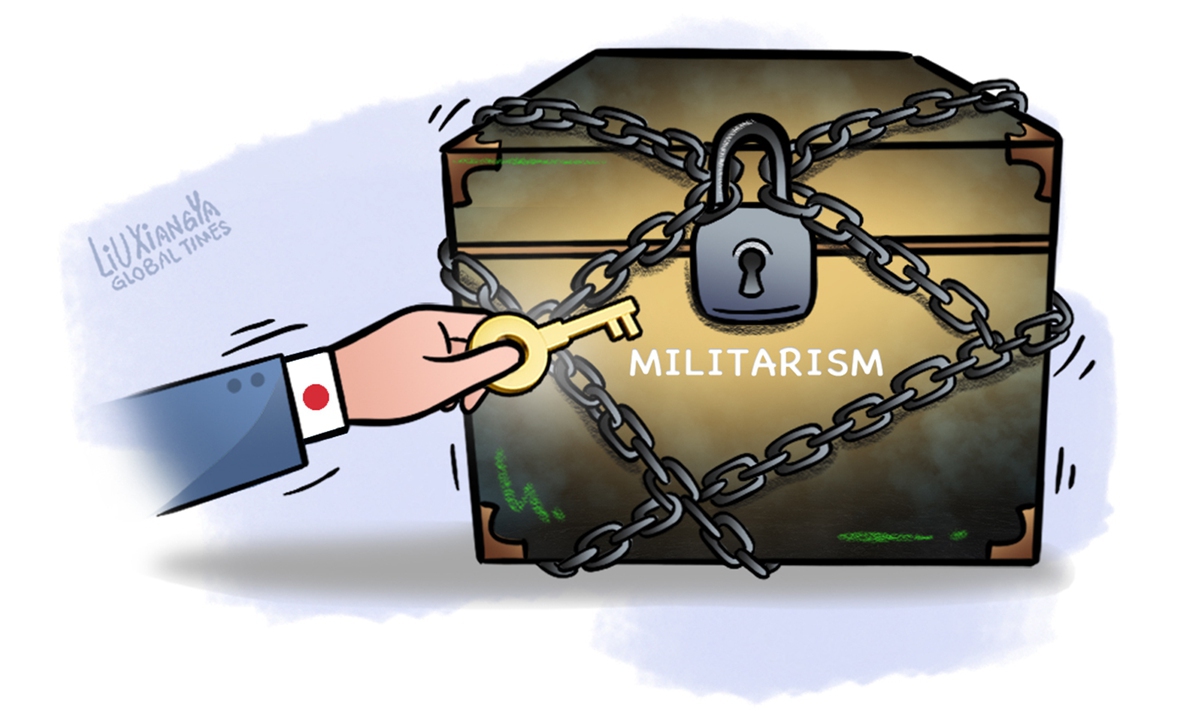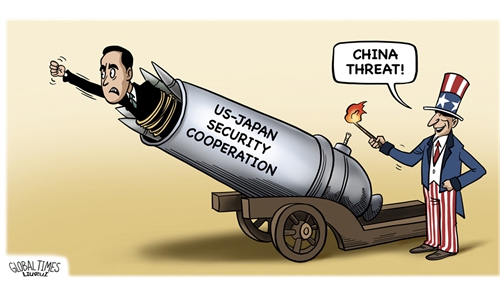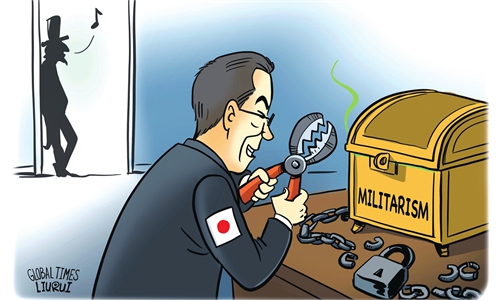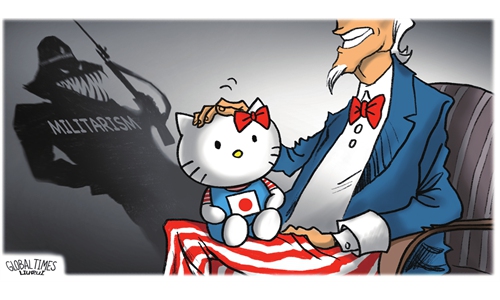
Illustration: Liu Xiangya/GT
Recently, Japan's Ministry of Defense released its draft request for the defense budget for the fiscal year 2025. In the request, it mentioned that the Japan Maritime Self-Defense Force (JMSDF) will undergo the largest organizational restructuring in over 60 years. This has drawn significant attention from international observers.
The most notable adjustment is the removal of unit names containing the word "escort." For example, the Fleet Escort Force, which has overseen surface battle vessels and replenishment vessels for the past 63 years, will be abolished and replaced by the newly established Fleet Surface Force.
Under the reorganization plan, the new Fleet Surface Force will consist of three Surface Battle Groups, one Amphibious Mine Warfare Group and one Patrol Defense Group. This round of reorganization is expected to be completed by the end of fiscal year 2025.
Although this move is ostensibly aimed at more effectively integrating the existing main naval vessels, it raises concerns among neighboring countries in light of Japan's continued increases in defense spending and its ongoing efforts to bypass its "pacifist constitution."
According to officials from Japan's Ministry of Defense, the purpose of establishing the three Surface Battle Groups is to respond emergencies simultaneously. To a certain extent, the "exclusively defense-oriented" nature of Japan's main maritime units is being further weakened.
This significant adjustment trend within the JMSDF inevitably evokes a term that has been buried in history - Combined Fleet. The Combined Fleet was the strategic battle corps of the Imperial Japanese Navy that carried out aggressive operations in the far seas during the first half of the 20th century. It also served as the "vanguard" of Japan's invasion of East Asian countries.
It is evident that Japan is now seeking to build an offensive maritime strike force, enhance its military presence in neighboring countries and maritime areas, strengthen its involvement in regional security affairs, and develop the capability to launch wars against potential opponents in three directions during wartime.
Additionally, Japan aims to be capable of executing "pre-emptive" attacks and conducting amphibious landing operations to invade other countries' territories once again. What is the difference between such a Fleet Surface Force and the Combined Fleet of the Imperial Japanese Navy?
As the source of war in Asia during World War II and a defeated nation, Japan adopted a "peace constitution" and an "exclusively defense-oriented" policy after the war, which stipulates that Japan is not allowed to have offensive military forces. Its military forces can only be used for self-defense, and are referred to as the Self-Defense Forces. However, within Japan, militaristic thinking has not been completely eradicated.
In recent years, the Japanese government has made deliberate efforts and used various tricks to break free from the "pacifist constitution" and the "exclusively defense-oriented" policy. It has vigorously developed its offensive military capabilities, and introduced advanced fighter jets and cruise missiles from the US. Japan is also actively cooperating with US geostrategy, increasing its military presence in the Asia-Pacific region and around the world and seeking various excuses to continuously send troops overseas.
Through some seemingly small changes, Japan is attempting to covertly accumulate its military strengths, gradually shedding the restrictions of the "pacifist constitution," seeking recognition as a world political and military power and striving to be "a normal country."
This approach has been a long-standing tactic employed by Japan's right-wing forces. History tells us that Asian countries and the international community should remain vigilant regarding Japan's military and security trajectories.
The author is a naval military expert. opinion@globaltimes.com.cn



